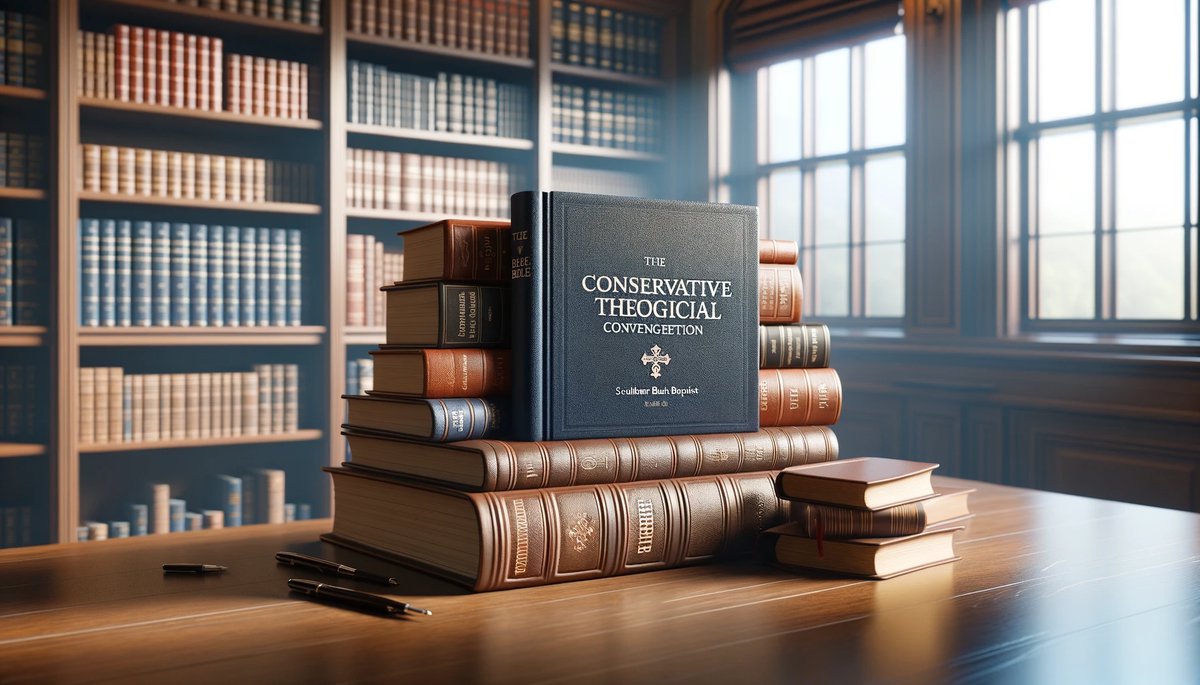Home>Theology and Spirituality>What Are The Requirements For A Southern Baptist Deacon


Theology and Spirituality
What Are The Requirements For A Southern Baptist Deacon
Published: February 22, 2024
Peter Smith, Editorial Director at Christian.net, combines deep insights into faith, politics, and culture to lead content creation that resonates widely. Awarded for his contributions to religious discourse, he previously headed a major organization for religious communicators, enhancing dialogue on faith's societal impacts.
Learn about the requirements for becoming a Southern Baptist deacon and the role they play in the church. Explore the theology and spirituality behind this important position.
(Many of the links in this article redirect to a specific reviewed product. Your purchase of these products through affiliate links helps to generate commission for Christian.net, at no extra cost. Learn more)
Table of Contents
Introduction
Becoming a deacon in the Southern Baptist tradition is a sacred and esteemed responsibility. The role of a deacon is deeply rooted in the principles of servant leadership, compassion, and dedication to the church community. In the Southern Baptist faith, deacons play a vital role in supporting the pastor, ministering to the congregation, and serving as spiritual leaders within the church.
The process of becoming a deacon in the Southern Baptist tradition is not taken lightly. It involves a thorough evaluation of an individual's spiritual maturity, moral integrity, commitment to service, and the support of the church community. These requirements are designed to ensure that those who serve as deacons exemplify the highest standards of character and devotion to the faith.
As we delve into the qualifications for a Southern Baptist deacon, it's important to recognize the significance of this role within the church. Deacons are called to embody the teachings of Jesus Christ, leading by example and demonstrating unwavering faith and compassion. Their service extends beyond the walls of the church, reaching into the lives of the congregation and the broader community.
In the following sections, we will explore the essential qualifications for individuals seeking to become deacons in the Southern Baptist tradition. From spiritual maturity and moral integrity to a steadfast commitment to service and the endorsement of the church, each requirement reflects the profound dedication and reverence associated with the role of a deacon. Let's embark on this enlightening journey to understand the noble prerequisites for serving as a Southern Baptist deacon.
Read more: In The Baptist Church What Is A Deacon
Qualifications for a Southern Baptist Deacon
Becoming a deacon in the Southern Baptist tradition is a significant undertaking that requires individuals to meet specific qualifications that reflect their commitment to serving the church and the congregation. These qualifications are not merely formalities; rather, they serve as a testament to the spiritual maturity, moral integrity, and unwavering dedication expected of those who aspire to fulfill the role of a deacon.
The qualifications for a Southern Baptist deacon encompass a multifaceted evaluation of an individual's character, faith, and willingness to serve. These criteria are deeply rooted in the teachings of the Bible and the principles of servant leadership. Aspiring deacons are called to embody the virtues of humility, compassion, and selflessness, mirroring the exemplary qualities demonstrated by Jesus Christ during his ministry.
The process of discerning the qualifications for a Southern Baptist deacon involves a comprehensive assessment of an individual's spiritual journey and their embodiment of Christian values. It is not solely based on academic or professional achievements but rather on the depth of one's faith and their embodiment of the teachings of Jesus Christ.
The qualifications for a Southern Baptist deacon are designed to ensure that those who assume this role possess the necessary attributes to serve as compassionate and dedicated leaders within the church community. These qualifications encompass spiritual maturity, moral integrity, commitment to service, and the endorsement of the church, reflecting the profound responsibility and honor associated with the role of a deacon.
As we delve into each of these qualifications, it becomes evident that they form the foundation upon which the role of a deacon is built. Each criterion serves as a testament to the high standards of character and devotion expected of those who are called to serve as deacons in the Southern Baptist tradition. It is through the fulfillment of these qualifications that individuals demonstrate their readiness to embrace the sacred responsibilities of the deaconate and uphold the values of faith, service, and compassion.
Spiritual Maturity
Spiritual maturity stands as a cornerstone among the qualifications for a Southern Baptist deacon, embodying the depth of one's faith, understanding of scripture, and commitment to spiritual growth. It transcends mere knowledge of religious doctrines, delving into the profound embodiment of Christian virtues and the application of biblical teachings in daily life.
At the heart of spiritual maturity lies a deep and intimate relationship with God. It encompasses a fervent devotion to prayer, a thorough understanding of scripture, and a genuine desire to align one's life with the teachings of Jesus Christ. Spiritual maturity is not measured by the length of one's religious tenure but rather by the depth of one's faith and the transformative impact it has on their character and actions.
Individuals aspiring to become deacons in the Southern Baptist tradition are expected to exhibit a profound spiritual maturity that permeates every aspect of their lives. This maturity is reflected in their humility, compassion, and unwavering commitment to serving others. It is a testament to their ability to navigate life's challenges with grace and resilience, drawing strength from their faith and exemplifying the virtues espoused in the Bible.
Moreover, spiritual maturity encompasses a continual pursuit of growth and understanding in matters of faith. It involves a willingness to engage in introspection, seek wisdom from spiritual mentors, and remain open to the guidance of the Holy Spirit. A spiritually mature individual demonstrates a teachable spirit, acknowledging that their journey of faith is a lifelong pursuit of deeper understanding and alignment with God's will.
In the context of the deaconate, spiritual maturity is not a static state but a dynamic and evolving aspect of one's faith. It is the foundation upon which the responsibilities of a deacon are built, enabling them to provide spiritual guidance, support, and leadership to the congregation. A spiritually mature deacon serves as a living example of the transformative power of faith, inspiring others through their words, actions, and unwavering commitment to the teachings of Jesus Christ.
In essence, spiritual maturity is not a mere prerequisite for the role of a deacon; it is the essence of their calling. It is the wellspring from which their service flows, the compass that guides their decisions, and the light that illuminates their path as they minister to the needs of the church and the broader community. It is through the embodiment of spiritual maturity that deacons fulfill their sacred duty of shepherding God's flock with wisdom, compassion, and unwavering faith.
Moral Integrity
Moral integrity stands as a foundational pillar among the qualifications for a Southern Baptist deacon, embodying the highest standards of ethical conduct, honesty, and righteousness. It encompasses the unwavering commitment to uphold moral principles, both in public and private life, reflecting the character of a true servant leader within the church community.
At the core of moral integrity lies a steadfast adherence to the teachings of the Bible and the embodiment of virtuous conduct. Individuals aspiring to become deacons in the Southern Baptist tradition are expected to exemplify moral integrity in their interactions, decisions, and relationships. This entails demonstrating honesty, transparency, and accountability in all aspects of their lives, serving as a beacon of ethical conduct for the congregation to emulate.
Moral integrity extends beyond mere adherence to a set of rules; it reflects the genuine alignment of one's actions with the moral precepts outlined in the scriptures. It encompasses the courage to stand for righteousness, the humility to acknowledge one's shortcomings, and the resilience to uphold ethical standards even in the face of adversity. A deacon of moral integrity is characterized by their unwavering commitment to truth, justice, and compassion, serving as a moral compass for the church community.
Moreover, moral integrity encompasses the cultivation of a blameless reputation, free from any hint of dishonesty, deceit, or moral compromise. It requires individuals to uphold the highest ethical standards in their personal and professional lives, demonstrating consistency and authenticity in their words and deeds. A deacon of moral integrity is entrusted with the sacred responsibility of shepherding the congregation, and as such, their conduct must reflect the highest moral virtues.
In the context of the deaconate, moral integrity is not merely a desirable trait but an indispensable requirement. It is the bedrock upon which trust, respect, and credibility are built within the church community. A deacon of moral integrity inspires confidence and serves as a role model for others, fostering an environment of transparency, accountability, and ethical leadership within the church.
In essence, moral integrity is not a superficial facade but a genuine reflection of one's character and commitment to righteousness. It is the embodiment of the virtues of honesty, integrity, and righteousness, serving as a testament to the transformative power of faith in shaping one's moral conduct. A deacon of moral integrity upholds the sacred trust placed in them, exemplifying the highest standards of ethical conduct and inspiring others to walk in the path of righteousness.
Commitment to Service
Commitment to service stands as a defining characteristic among the qualifications for a Southern Baptist deacon, embodying a profound dedication to selflessly minister to the needs of the church and the broader community. It transcends mere acts of charity, encompassing a wholehearted devotion to serving others with humility, compassion, and unwavering commitment.
At the heart of commitment to service lies a genuine desire to emulate the servant leadership exemplified by Jesus Christ during his earthly ministry. Individuals aspiring to become deacons in the Southern Baptist tradition are called to embody the spirit of selfless service, mirroring the sacrificial love and compassion demonstrated by Jesus in his interactions with the marginalized, the oppressed, and the downtrodden.
Commitment to service extends beyond the confines of the church, reaching into the lives of the congregation and the broader community. It involves a willingness to embrace the needs of others, extend a helping hand to the marginalized, and advocate for justice and compassion in all spheres of life. A deacon committed to service is characterized by their readiness to go above and beyond to meet the physical, emotional, and spiritual needs of those they serve, reflecting the transformative impact of genuine care and empathy.
Moreover, commitment to service entails a steadfast dedication to the ministry of reconciliation and restoration. It involves fostering an inclusive and welcoming environment within the church, reaching out to those in need, and providing a supportive and nurturing space for individuals to experience healing, hope, and spiritual growth. A deacon committed to service serves as a bridge between the church and the community, extending the love and compassion of Christ to all who seek solace and support.
In the context of the deaconate, commitment to service is not a mere obligation but a sacred calling. It is the embodiment of the selfless love and compassion that lies at the core of the Christian faith, reflecting the transformative power of service in uplifting and empowering individuals. A deacon committed to service becomes a beacon of hope, a source of comfort, and a catalyst for positive change within the church and the broader community.
In essence, commitment to service is not a superficial duty but a profound expression of one's faith and devotion to the teachings of Jesus Christ. It is the embodiment of the selfless love, compassion, and humility that define the essence of Christian service, inspiring others to embrace the transformative power of serving with unwavering dedication and genuine care.
Support from the Church
The significance of support from the church in the context of the qualifications for a Southern Baptist deacon cannot be overstated. It represents the affirmation, endorsement, and spiritual guidance provided by the church community, reflecting a collective acknowledgment of an individual's readiness and suitability to assume the responsibilities of the deaconate.
At its core, support from the church embodies the recognition and validation of an individual's spiritual maturity, moral integrity, and commitment to service by the church leadership and congregation. This support serves as a testament to the communal discernment of an individual's calling to the deaconate, affirming their alignment with the values, beliefs, and mission of the church.
The process of discerning support from the church involves a comprehensive evaluation of an individual's character, faith, and readiness to serve as a deacon. It encompasses the collective wisdom and discernment of the church leadership, who prayerfully consider the suitability of individuals to assume the responsibilities of the deaconate. This discernment is rooted in the principles of communal accountability, spiritual discernment, and the collective affirmation of an individual's calling to serve as a deacon.
Moreover, support from the church extends beyond mere affirmation; it encompasses the provision of spiritual mentorship, pastoral guidance, and communal encouragement to individuals as they prepare to embrace the responsibilities of the deaconate. This support serves as a source of strength, wisdom, and affirmation, nurturing individuals in their spiritual journey and equipping them to fulfill the sacred duties of a deacon with humility and grace.
In the context of the deaconate, support from the church is not merely a formality but a sacred covenant between the individual and the church community. It reflects the communal commitment to walk alongside individuals as they embark on their journey of service, providing the necessary spiritual, emotional, and communal support to empower them to serve with excellence and devotion.
In essence, support from the church is a testament to the interconnectedness and interdependence of the church community, reflecting the collective discernment, affirmation, and equipping of individuals called to serve as deacons. It embodies the communal commitment to nurture, empower, and uphold those who heed the call to the deaconate, fostering an environment of spiritual growth, accountability, and unwavering support within the church community.
Conclusion
In conclusion, the qualifications for a Southern Baptist deacon represent a profound and multifaceted evaluation of an individual's character, faith, and readiness to assume the responsibilities of the deaconate. These qualifications, encompassing spiritual maturity, moral integrity, commitment to service, and the endorsement of the church, serve as a testament to the sacred and esteemed nature of the role of a deacon within the Southern Baptist tradition.
Spiritual maturity stands as a foundational requirement, reflecting the depth of one's faith, understanding of scripture, and commitment to spiritual growth. It embodies a genuine and transformative relationship with God, permeating every aspect of an individual's life and serving as the wellspring from which their service flows.
Moral integrity, another essential qualification, embodies the highest standards of ethical conduct, honesty, and righteousness. It reflects the unwavering commitment to uphold moral principles, serving as a moral compass for the congregation and the broader community.
Commitment to service represents the selfless dedication to minister to the needs of the church and the community, mirroring the servant leadership exemplified by Jesus Christ. It encompasses a wholehearted devotion to serving others with humility, compassion, and unwavering commitment, reflecting the transformative impact of genuine care and empathy.
Furthermore, the significance of support from the church cannot be overlooked. It represents the communal affirmation, endorsement, and spiritual guidance provided by the church community, reflecting the collective acknowledgment of an individual's readiness and suitability to assume the responsibilities of the deaconate.
In essence, the qualifications for a Southern Baptist deacon encapsulate the highest standards of character, faith, and commitment to service. They serve as a testament to the profound responsibility and honor associated with the role of a deacon, reflecting the embodiment of the teachings of Jesus Christ and the principles of servant leadership. Through the fulfillment of these qualifications, individuals demonstrate their readiness to embrace the sacred responsibilities of the deaconate and uphold the values of faith, service, and compassion within the church and the broader community.














